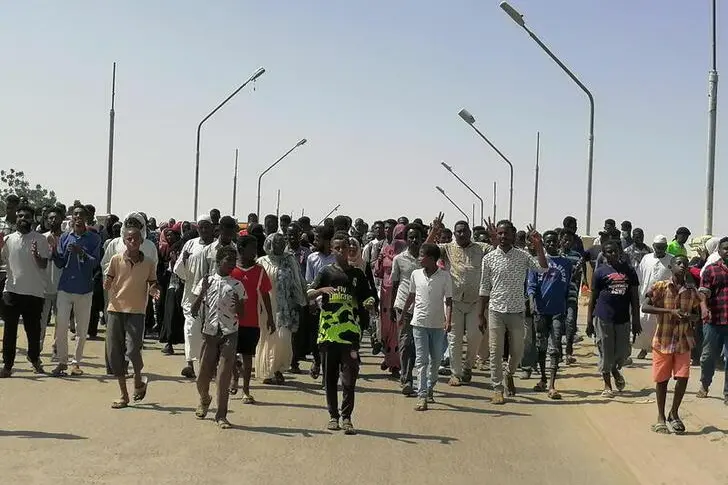PHOTO
(The author is a Reuters Breakingviews columnist. The opinions expressed are his own.)
LONDON - From the times of the pharaohs, the Nile has been a source of life and wealth to millions. With populations soaring along its 6,700-kilometre length, it is increasingly a source of tension. A coup in Sudan raises the odds that disagreements, particularly over Ethiopia’s building of a massive hydroelectric dam, become confrontation.
Egypt and Sudan are the greatest beneficiaries of the river’s largesse, thanks to geography – they are the most downstream of the 11 countries in its basin – and history. The 1959 Nile Waters Agreement, negotiated with colonial Britain, allocated its entire annual flow to the pair, split 75-25 in Egypt’s favour. The other nine countries upstream got nothing.
What was unfair then is dangerously unsustainable now. Since 1959, the population of Ethiopia, whose central highlands contribute 80% of the Nile’s flow, has increased fivefold to 115 million, making it Africa’s most populous nation after Nigeria. Its economy has undergone an even more dramatic transformation, trebling in size over the last decade to nearly $100 billion, thanks to hefty inward investment in manufacturing and water-hungry agriculture.
The clearest manifestation of Addis Ababa’s new clout is the Grand Ethiopian Renaissance Dam (GERD), a $5 billion hydroelectric barrage nearing completion across the Nile near the Sudanese border. Once filled, it should generate more than 6 gigawatts of electricity, nearly three times Ethiopia’s current installed capacity.
Ordinarily, Sudan’s 45 million people would benefit from cheap, green power on their doorstep, especially since their own comes from expensive imported diesel. But with their own economy imploding – inflation topped 400% in July – most Sudanese are more exercised about lower Nile water levels, especially during the years it will take to fill the GERD’s dam. Hence now-ex civilian Prime Minister Abdalla Hamdok’s frequent sabre-rattling towards Addis.
Yet with Hamdok ousted, the situation looks worse. Khartoum has been yellow-carded by the African Union, the regional body mandated recently by the U.N. Security Council to keep GERD tempers in check. That makes water diplomacy harder. Post-coup sanctions will also hit the economy. And Sudan’s new bosses will be more likely to view the Nile through the eyes of Egyptian President Abdel Fattah al-Sisi, another military man who in April warned of “inconceivable instability” if the GERD took “a single drop of water from Egypt”. The Nile may not keep its life-giving reputation for long.
CONTEXT NEWS
- Sudan’s armed forces seized power on Oct. 25, ousting a military-civilian transitional government created after the 2019 removal of long-term autocrat Omar al-Bashir. At least seven people were killed and 140 injured in clashes between soldiers and protesters.
- Coup leader General Abdel Fattah al-Burhan announced a state of emergency, saying the armed forces needed to protect peace and security. He also promised to hold elections in July 2023.
- The African Union suspended Sudan on Oct. 27 pending the restoration of civilian rule. The World Bank, which had granted Sudan access to $2 billion in financing, also said it had paused disbursement of funds.
(The author is a Reuters Breakingviews columnist. The opinions expressed are his own.)
(Editing by George Hay and Oliver Taslic) ((For previous columns by the author, Reuters customers can click on CROPLEY/ SIGN UP FOR BREAKINGVIEWS EMAIL ALERTS https://bit.ly/BVsubscribe | ed.cropley@thomsonreuters.com; Reuters Messaging: ed.cropley.thomsonreuters.com@reuters.net))





















